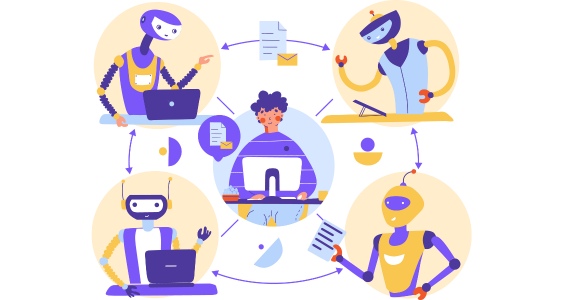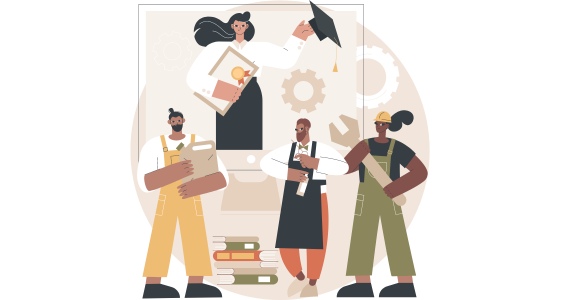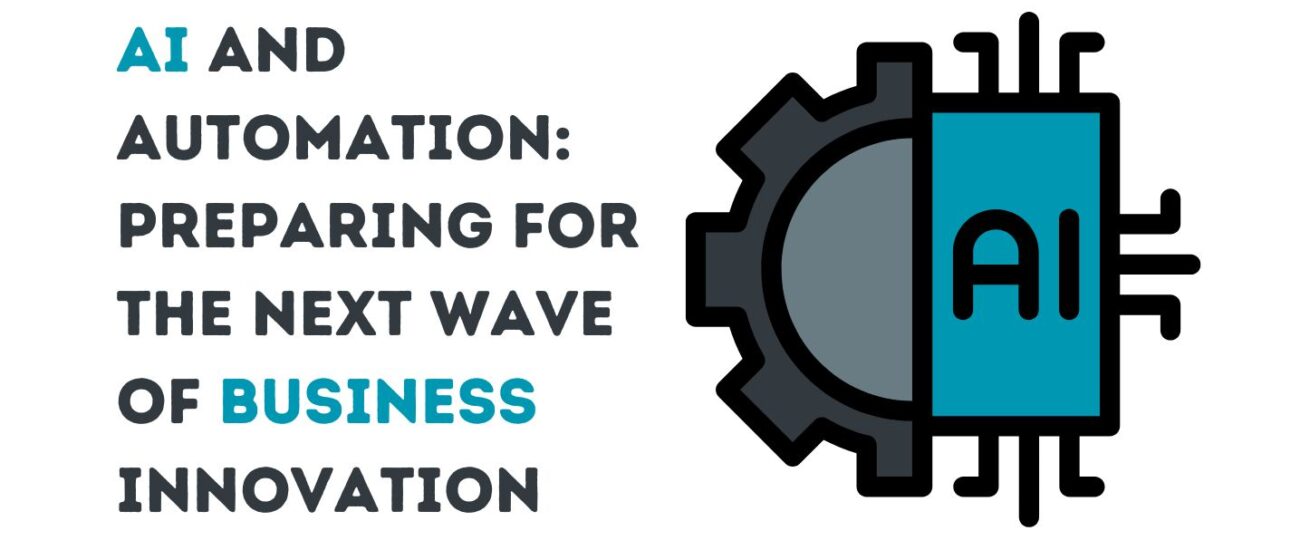As we stand on the brink of a technological revolution that will fundamentally alter the way we live, work, and relate to one another, artificial intelligence (AI) and automation have emerged as key drivers of innovation.
This next wave of business transformation promises to bring about a shift as significant as the Industrial Revolution, reshaping industries and redefining career paths.
For professionals and businesses alike, the time to prepare is now. This article explores how to harness these technologies for growth and success in the ever-evolving business landscape.
Understanding AI and Automation
At its core, AI involves creating computer systems that can perform tasks typically requiring human intelligence. This includes everything from recognizing speech and making decisions to translating languages and driving cars.
Automation, on the other hand, is the technology by which a process or procedure is performed without human assistance.

When combined, AI and automation can increase efficiency, reduce costs, and open up new avenues for innovation across various sectors.
The Impact on the Workforce
The integration of AI and automation into business processes is transforming the workforce. While some jobs may be automated away, these technologies also create new roles and opportunities, particularly in fields like AI development, data analysis, and cybersecurity.
Professionals can prepare by upskilling in these areas, focusing on the unique human skills machines cannot replicate, such as creativity, emotional intelligence, and strategic thinking.
Industries on the Brink of Transformation
Several industries stand at the forefront of this transformation. In healthcare, AI is being used to personalize patient care and accelerate drug discovery. In finance, automation and AI are streamlining operations and enhancing customer service.
Manufacturing is seeing the advent of smart factories, where AI-driven robots work alongside humans. Even the tourism sector, including European cruises, is leveraging AI to offer personalized travel experiences and operational efficiencies, showcasing the versatility of these technologies.
Preparing for the Shift
Adapting to the changes brought about by AI and automation requires a proactive approach. For businesses, this means investing in technology infrastructure and workforce training, fostering a culture of innovation, and staying abreast of regulatory and ethical considerations. For individuals, it involves continuous learning and adaptability, with a focus on developing skills that will be in demand in the future workplace.
The Role of Education and Training
Education systems must evolve to prepare the next generation for the jobs of the future. This includes not only technical training in fields like AI and robotics but also a strong emphasis on soft skills.

Additionally, lifelong learning should become a central part of everyone’s career strategy, facilitated by online courses, workshops, and other educational resources.
Ethical Considerations
As we embrace AI and automation, ethical considerations must take center stage. This includes ensuring the responsible use of AI, addressing privacy concerns, and mitigating the risk of job displacement. By prioritizing ethical considerations, businesses can build trust and create value for all stakeholders. For a deeper dive into privacy issues in AI, G2 offers a comprehensive guide exploring the risks, responsibilities, and best practices around data protection in the age of intelligent systems.
Looking Ahead
The journey towards AI and automation is full of potential but also challenges. As we look to the future, it’s clear that these technologies will continue to shape the business landscape in profound ways.
Staying informed, embracing continuous learning, and prioritizing ethical considerations are key steps in preparing for the next wave of business innovation.
Conclusion
AI and automation are not just futuristic concepts but present realities reshaping the business world. As we navigate this transformative era, the readiness to adapt and evolve will determine success.
For professionals, this means developing a skill set that blends technical proficiency with human creativity and emotional intelligence. For businesses, it requires a strategic approach to integrating these technologies while ensuring ethical and responsible use.
Together, we can harness the power of AI and automation to drive innovation, create new opportunities, and prepare for a future where technology and human ingenuity converge to achieve unprecedented outcomes.
See Also: Optimizing Operational Costs: AI’s Role In Enhanced Expense Management In The Restaurant Industry










